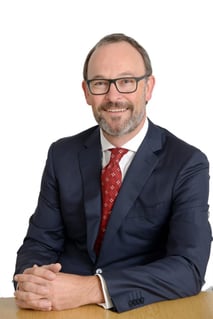by Noel Rowland *
At The Tax Institute, from the National Council down, we’ve committed time and focus to imagining who the tax professional of the future will be and what they will do.
With many factors driving change — including technology, demographics, social trends, economic fluctuations, political shifts and enhancements to legislation and regulations — we continuously ask how the tax function might evolve over the next decade.
Tax 2025
I recently attended an event that featured KPMG’s Grant Wardell-Johnson, who co-authored a discussion paper released in August, titled Tax 2025.
Chapter VII of this paper addresses the tax function of the future and outlines the trends and outcomes that may emerge over the next decade. For example, the tax function will likely require multiple new skills, including deep expertise in technology, data analytics, economic analysis, communication and negotiation, as well as proficiency in managing disputes across a wider variety of jurisdictions and cultures.
The tax function will be affected by the rise of artificial intelligence and automation for compliance.
It will face a greater number of dilemmas involving a larger number of stakeholders and more substantial technical complexities. A higher level of tax transparency will require the tax function to provide clear, simple answers to complex issues. Multinational enterprises are also likely to experience a proliferation of presences in different jurisdictions.
To help manage these issues, relatively sophisticated methods of data analysis will be available to the tax function, offering profound insights. These analytical capabilities will, in turn, enable the tax function to provide a clearer, more nuanced understanding of non-tax business arrangements, including the operational and financial areas of businesses.
The ‘hollowing out effect’
Wardell-Johnson also spoke about a ‘hollowing out effect’, where technology contributes to a decrease in the number of traditional, middle-skilled jobs available within the tax function. This follows a reduction in the number of lower-level compliance jobs that once provided an invaluable learning experience for entry-level tax professionals.
If, in the future, these roles are unavailable — if junior tax practitioners no longer learn and do in the same way — important questions arise. For example, are the basic data entry and ‘number crunching’ skills that young practitioners once learned on the job still relevant for the senior tax professional of the future? How will the right people enter the tax profession and progress in their careers? How will we train people for higher-level tax roles?
The ATO’s position
The ATO recently demonstrated its support for the tax profession. It established a ‘Future of the tax profession’ working group. The Commissioner also developed a draft statement that describes how the ATO and tax professionals might work together effectively.
The statement affirms the ATO’s support for the tax profession, specifically stating that, “in Australia, tax professionals have a critical role in the tax and superannuation systems” and that “the ATO and the tax profession depend on each other for success”.
It also outlines likely future changes in the administration of the tax and superannuation systems — due to greater automation and digital business, a reduction in transactional requirements, increased data sharing between taxpayers, third parties and government, and whole of government services.
“As both the ATO and tax profession modernise,” the statement says, “new products and services will need to be co-designed to suit the majority.”
The Institute’s perspective
The Tax Institute welcomes such expressions, which acknowledge that the health and sustainability of the tax system depend on a strong, vibrant, highly-skilled tax profession.
The Institute, especially at National Council level, continuously addresses questions such as: What does the tax professional of the future look like? What support will they need? What will their function look like? Who will be in that function? Will they have different skills? Will the tax function include technologists, data analysts, economists, mathematicians, social scientists, specialist communicators, negotiators and mediators?
We’re also keen to hear our members’ answers to these questions. What do you think? In what ways do you believe the tax profession is evolving?
Your input can help to ensure that The Tax Institute continues developing products and services that are relevant and serve real needs.
Technology transition
Speaking of preparing for the future, the Institute is currently undertaking a major technology project that will involve implementing a new CRM capability.
We appreciate members’ patience as we transition to this system. It will eventually help us to provide better service, more flexible membership offerings and more innovative product packages.
_________________________
* Noel Rowland is Chief Executive Officer of The Tax Institute.









